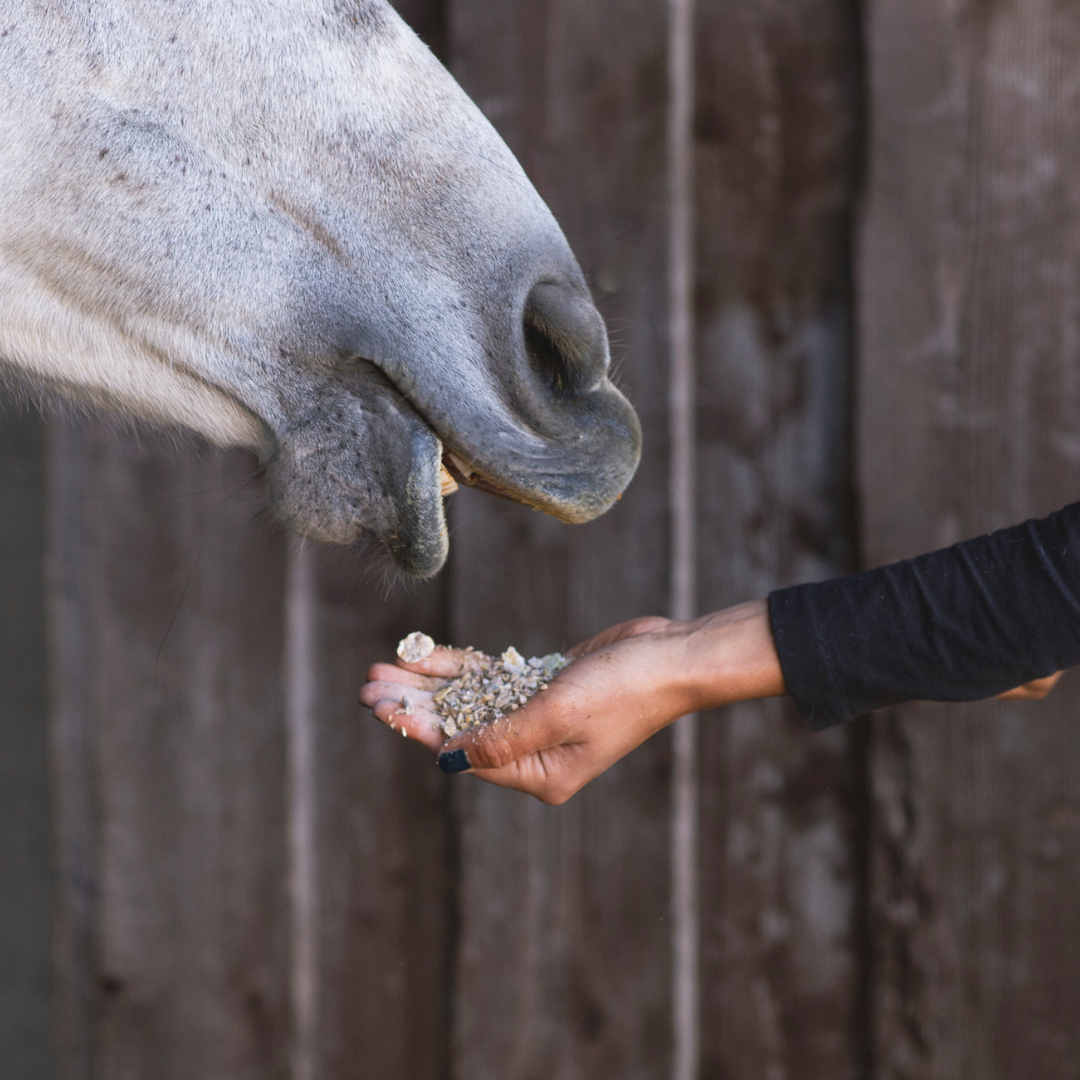Supporting Equine Digestive Health: The Role of Probiotics, Prebiotics, and Gut Health
Share

Equine digestive health is a critical aspect of a horse's overall well-being. Proper digestion ensures that horses absorb the nutrients they need and plays a vital role in immune function and energy regulation. The digestive process, particularly in the hindgut, depends on a delicate balance of microorganisms that break down fiber, proteins, and other nutrients. However, stress, dietary changes, and illness can easily disrupt this balance, leading to colic, diarrhea, and poor nutrient absorption. To prevent these problems and support optimal digestive function, horse owners can utilize probiotics and prebiotics, which help maintain the natural microbial balance in the gut.
Probiotics are live beneficial bacteria that support the digestive system by promoting healthy gut flora. These bacteria aid in the breakdown of nutrients, improve digestion, and enhance the horse's ability to absorb essential vitamins and minerals from their diet. In addition, probiotics can be especially beneficial during periods of stress, such as transportation, competition, or abrupt changes in diet. Stress can upset the natural balance of bacteria in the gut, but probiotics help to replenish and maintain a healthy population of microorganisms, thereby preventing digestive disturbances. By helping to ward off harmful bacteria and promoting the growth of good bacteria, probiotics contribute to overall gut health and, in turn, support the horse's immune system, making it more resilient to infections and illnesses.
Prebiotics, conversely, are non-digestible fibers that serve as food for the beneficial bacteria in the gut. Unlike probiotics, which introduce live bacteria, prebiotics help nourish and encourage the growth of the beneficial bacteria already in the digestive system. This support enhances fiber digestion and overall gut health by creating an environment that fosters the development of good bacteria. Prebiotics also help maintain a balanced gut flora, which reduces the risk of conditions like colic or laminitis that can arise from bacterial imbalances. By supporting the growth of healthy bacteria, prebiotics also indirectly boost the horse's immune system and contribute to overall health and well-being.

Maintaining equine gut health requires a comprehensive approach that goes beyond just supplements. A high-forage diet is essential for horses, as their digestive systems are designed to process fiber-rich foods. Ensuring horses have access to quality hay or pasture is crucial for keeping their digestive systems functioning smoothly. Gradual changes to diet are also important to prevent disruptions in gut flora. Horses should be introduced to new feeds, supplements, or forages slowly over 7-10 days, allowing their digestive systems time to adapt without causing stress to the gut. Stress management itself plays a crucial role in digestive health. Stressful situations, such as changes in routine, travel, or competition, can negatively impact gut flora, so maintaining a consistent routine and reducing environmental stressors as much as possible is beneficial. Additionally, probiotics can be helpful during these times to prevent digestive upset.
Regular veterinary care, including deworming and dental checks, promotes digestive health. Parasites can damage the gut lining and reduce the horse's ability to absorb nutrients, while dental issues can make it difficult for horses to chew and digest their feed correctly. Ensuring that your horse's teeth are in good condition and that they are on a proper deworming schedule will help maintain effective digestion. Hydration is another crucial factor in digestive health, as dehydration can increase the risk of colic. Ensuring that horses have constant access to clean water is essential, particularly during hot weather or after exercise, when the risk of dehydration is higher.
In conclusion, equine digestive health is vital to a horse's overall well-being. Probiotics and prebiotics offer valuable support for maintaining a balanced gut flora, improving nutrient absorption, and enhancing immune function. By taking a holistic approach to gut health—through proper nutrition, stress management, and veterinary care—horse owners can help ensure their horses enjoy optimal digestive health. This, in turn, leads to better performance, greater resilience to illness, and an overall healthier and happier horse.

